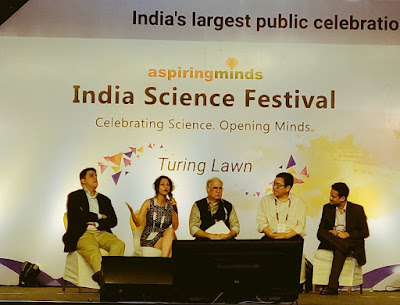IDEAPLAY: New Media, Society & Change
Recently I was invited by the Department of Education at Michigan State University to give a public lecture and some interviews on how people learn to leisure and labor with new technologies in rural India. They did a wonderful job in capturing the interview through their multimedia portal IDEAPLAY, an excellent way to disseminate and share conversations that take place at this department. Below are the links for the interview:
IDEAPLAY: Payal Arora on New Media, Society and Change
Learning to leisure and labor with new technologies in rural India
There is an intricate
relationship between leisure, labor and learning. Much is revealed from eight-months of ethnographic fieldwork on
computer-mediated social learning in rural India. The role of educational institutions against informal
learning spaces such as cybercafés in fostering digital engagements is
explored. Issues of global knowledge constructions, plagiarism, and collaborative/peer
based learning with computers is analyzed in this unique emerging market
context. The researcher gained
employment at popular cybercafés to capture the spectrum of youth learning
with new media spaces. It is found that leisure occupies a central position in
the embracing of new media technologies and much labor goes into such playful
and creative processes. Through Orkut, music downloads, instant messaging and
dating, these cybercafés transform into recreational hubs while incidental
learning occurs. New media spaces it is
seen allow for new exposures and opportunities for learning; yet, what
constitutes as ‘good’ learning is subjective to the nature of mediations, both
social and technical. Collaborative and informal learning are liberated from formal
curriculum and yet, such freedoms bring with it deep and persistent
(mis)education. New kinds of expertise are created online that compels us to re-examine
the role of the teacher as authority in knowledge construction. World knowledge
is locally designed and is often not shared, creating cosmopolitanisms in
global education. In essence, it is found that learning through digital spheres
is indeed creative but not necessarily ‘correct’ by formal education standards
nor compatible with global understandings. Thereby, through a series of specific
digital explorations and encounters by the youth, we learn that interaction
does not necessarily equate to understanding, learning with new technologies
can be peripheral and fleeting and that which gets learnt can diverge far from
what is expected to be learnt.



Comments
Post a Comment